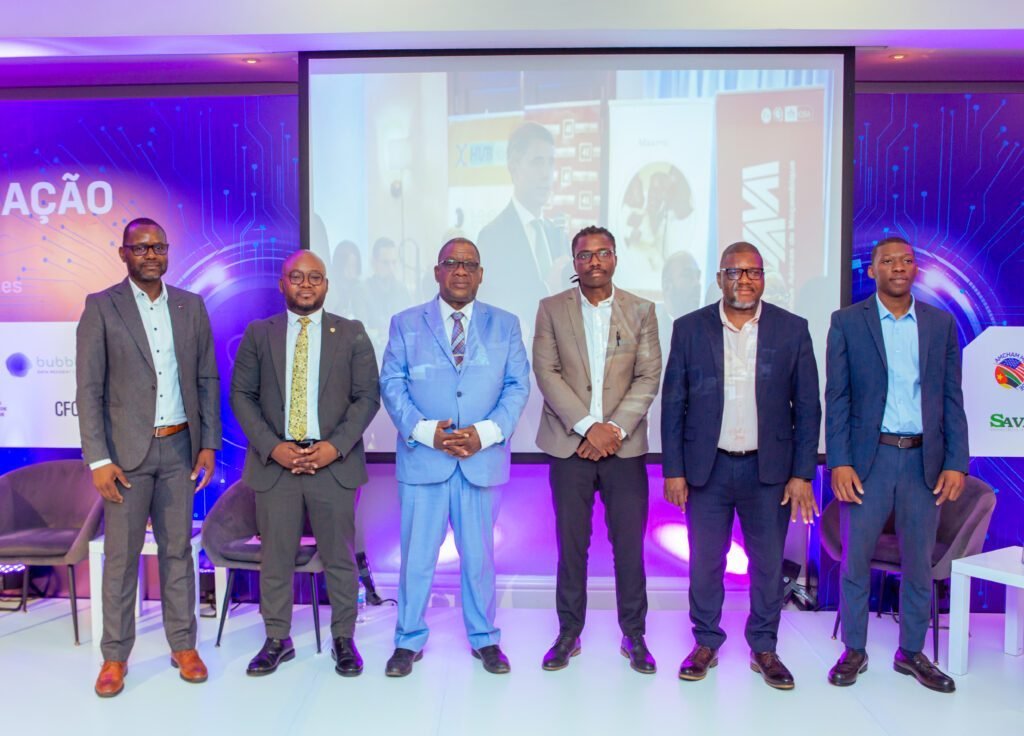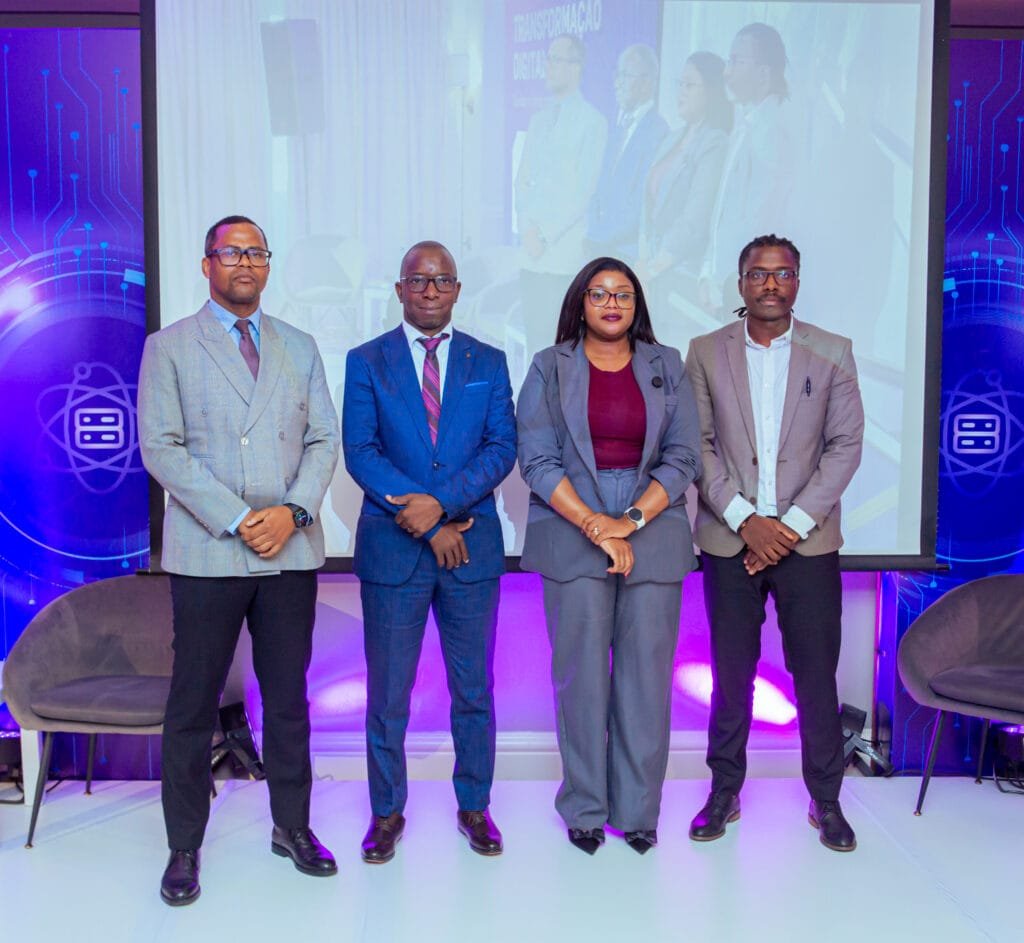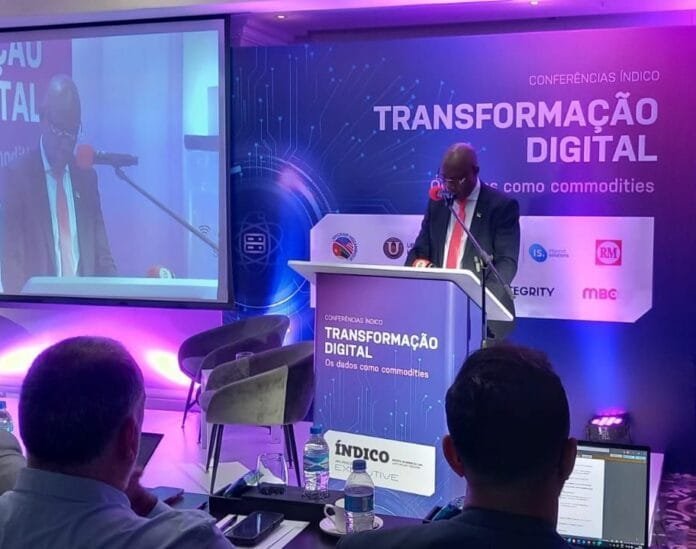The role of data in digital transformation took centre stage in a debate under the theme “Data as Commodities”, held during the 7th edition of the Índico Conferences, organised by Executive Moçambique. The gathering brought together academics, managers and institutional representatives to reflect on technological infrastructure, digital security, regulation and inclusion in the use of information as a strategic asset for national development.

Emílio Jorge, Director of BCX Moçambique, emphasised the need to strengthen digital infrastructures as an essential condition for the country’s advancement in cloud computing. He stressed that the transition to higher-capacity networks, including 5G, and the consolidation of local data centres are fundamental to ensure security, digital sovereignty and efficiency in information management. “The infrastructural base must be solid for digital transformation to occur in a safe and competitive environment,” he argued.
This was followed by João Bambo, Product Manager at Standard Bank Insurance, who focused his presentation on digital security and institutional capacity-building. He underlined the importance of safeguarding customer data and expanding digital insurance services accessible via online platforms. “We cannot speak of innovation without ensuring trust and security in digital transactions,” he noted, adding that digital literacy must advance hand in hand with technological modernisation.
For his part, Constantino Sotomane, Administrator of the National Institute of Information and Communication Technologies (INTIC), highlighted the role of regulation and data protection in the digitalisation process. He stated that the country is in the final stages of preparing legal instruments, including the Personal Data Protection Act and complementary regulations, which will reinforce digital sovereignty and safeguard citizens’ privacy. “It is not enough to have technology; a regulatory framework is necessary to guarantee user trust and cooperation with other jurisdictions,” he stressed.
In the component of digital inclusion, Charles Chadali, Project Manager at Machel Fidus, underlined the impact of the DIGI programme, which invests in digital literacy and the training of young people in remote communities. The aim, he said, is to reduce inequalities in access to technology and create conditions for citizens to participate actively in the digital economy. “Inclusion is the foundation of a sustainable digital transformation, capable of generating real opportunities,” he declared.
The debate closed with remarks from José Nhampossa, Executive Administrator for Science, Technology and Innovation at ENPCT, who stressed support for innovation and startups as a decisive element to boost the technological ecosystem. He called for greater coordination between the public sector, universities and entrepreneurs to accelerate the creation of national digital solutions with economic impact.
In the end, participants converged on the idea that, much like natural resources, data today represent an asset of high economic value, and their effective management may determine Mozambique’s competitiveness in the regional and global landscape.
Data Positioned as the New Engine of Value in Mozambique’s Economy
Also within the framework of the 7th edition of the Índico Conferences, the second panel focused on “Data as an Engine of Value: Innovation, Finance and Artificial Intelligence”, where experts from different areas reflected on the role of information as a strategic asset for the economy.
The first intervention came from Huruda Malungane, Founder and CEO of the CFO Forum Mozambique, who emphasised the centrality of data in modern financial management. “We, CFOs version 4.0, think in two paradigms: data management and sustainability. A more efficient administration of information ensures cost optimisation and greater business sustainability,” she stated. For Malungane, Mozambique remains at an early stage of digital maturity, with only a few sectors, such as banking, insurance and telecommunications, using data as a structuring tool for decision-making. “We do not yet have institutions monetising data as a service, but this is an inevitable step,” she concluded.

She was followed by Ricardo Taca, Chief Operating Officer at MCNet, who focused on the impact of artificial intelligence and digital transformation on the future of Mozambique’s industry. The executive stressed that technology only makes sense when it brings public and private services closer to the citizen. “We have infrastructures, universities and technology centres. The challenge is no longer the availability of technology, but its practical application, capable of creating value for Mozambicans,” he observed. Taca further added that the national industry must position itself to turn data into innovation, as is already happening in other African markets.
Raimundo Zandamela, CEO of Grupo Máximo, analysed the role of data in the insurance sector, with an emphasis on the financial inclusion of small and medium-sized enterprises. He pointed out that intelligent data analysis can increase insurance penetration within the business fabric, traditionally marked by low uptake. “The strategic use of data allows us to design products tailored to SMEs and better respond to their needs, reinforcing the financial resilience of companies,” he argued.
The debate ended with a common note among the speakers: the urgent need to transform data into a real economic asset, capable of generating value comparable to oil, but with greater sustainability potential.




